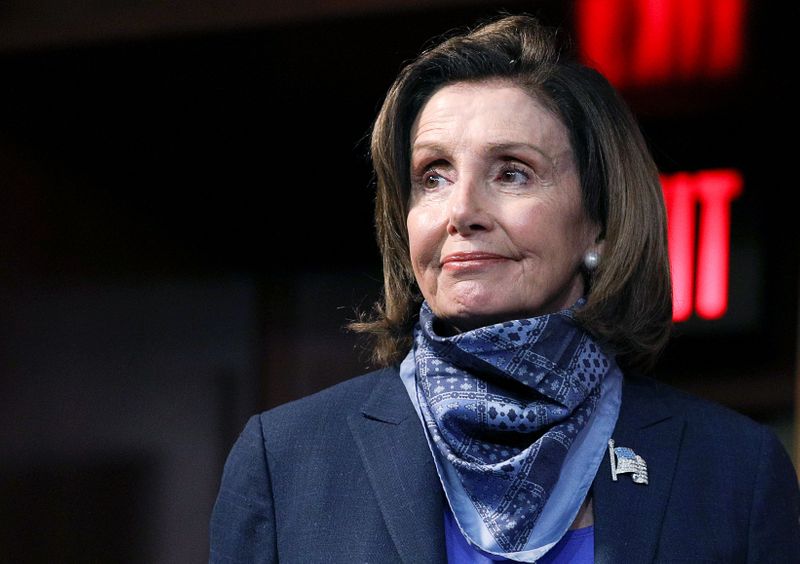By Susan Cornwell and Doina Chiacu
WASHINGTON (Reuters) - The U.S. House of Representatives expects to pass a nearly $500 billion coronavirus relief bill on Thursday but will put off any decision on changing its voting rules during the pandemic, avoiding a potential partisan fight.
The bill, which will provide funds to small businesses and hospitals struggling with the economic toll of a pandemic that has killed more than 45,000 Americans, is expected to be the fourth coronavirus measure passed by Congress, boosting the overall federal financial response to almost $3 trillion.
Democratic Speaker Nancy Pelosi backed away from calling for a vote on a measure that would allow members to cast proxy votes on colleagues' behalf during the crisis to promote social distancing and limit the risk of members being exposed to the virus, a Democratic leadership aide said Wednesday.
The response to the pandemic has become a political flashpoint with some Republican governors and President Donald Trump saying the widespread closures of businesses, schools and social institutions are causing economic dislocation that outweighs the damage caused by the virus.
Instead, Pelosi told other leading Democrats on a call that she and House Republican Leader Kevin McCarthy would have a bipartisan group of House lawmakers review remote voting by proxy and reopening the House, the aide said.
Congress has not met in regular session since last month, and is in recess until at least May 4 because of the pandemic. But House leaders have called members back to Washington for a Thursday vote on the coronavirus aid.
The Republican-controlled Senate approved it on a voice vote Tuesday, but with some opposition expected in the House, leaders decided to bring members back for a roll call vote.
The proposal Democrats scrapped would have allowed proxy voting for the first time, so that in the future House members who cannot attend because of the pandemic can ask other members to vote for them.
House Republicans were opposed, saying there are already measures in place to ensure Congress can act in an emergency.
Representative Rodney Davis, the top Republican on the House Rules Committee, said an existing rule allows the House to reduce the number of members required to do business. That rule was set up after the attacks of Sept. 11, 2001, Davis said.

Pelosi told several news outlets she expects passage of the $484 billion aid package, which includes funds for small businesses, hospitals and coronavirus testing. She said lawmakers would immediately move onto the next plan for tackling issues emerging from the outbreak that has crushed the nation's economy and battered its healthcare system.